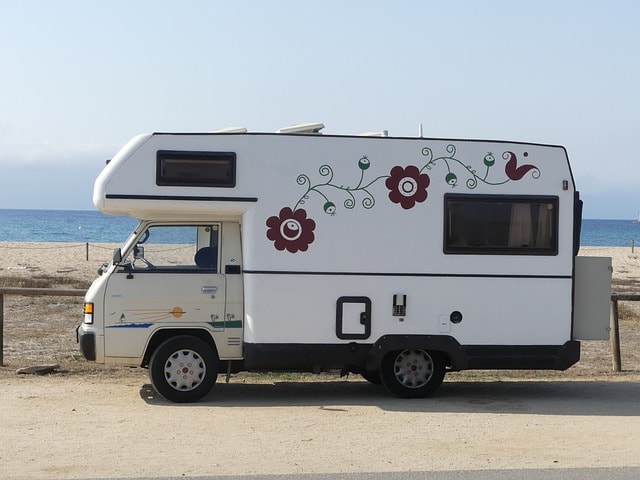Blog

Can I Keep My Recreational Vehicles After Bankruptcy in Georgia?
Bankruptcy | July 1, 2024 | Christopher Ross Morgan
Yes, potentially. It depends on your RV’s equity (value minus loan amount) compared to Georgia’s vehicle exemption ($5,000). If the equity is under $5,000, you likely get to keep it. Chapter 13 bankruptcy allows keeping the RV through a repayment plan. Consult a Georgia bankruptcy attorney for specifics.
Key Insights
Filing for bankruptcy is a significant decision that impacts your financial situation and assets. One common concern for individuals filing for bankruptcy in Georgia is whether they can keep their recreational vehicles (RVs). RVs often represent a significant investment and a source of enjoyment, making it crucial to understand the legal landscape surrounding them during bankruptcy proceedings.
Understanding Bankruptcy
Bankruptcy provides a legal framework for individuals overwhelmed by debt to reorganize or eliminate their debts under the protection of the bankruptcy court. The two primary types of consumer bankruptcy are Chapter 7 and Chapter 13, each with its own rules and implications for asset retention.
What Happens to Non-Exempt Assets in Bankruptcy
When you file for bankruptcy, a distinction is made between exempt and non-exempt assets. Non-exempt assets, which include certain types of property not protected by exemptions, may be sold by the bankruptcy trustee to pay creditors. Understanding what constitutes non-exempt property is essential in determining the fate of your RV.
How Chapter 7 Bankruptcy Exemptions Work
Chapter 7 bankruptcy, also known as liquidation bankruptcy, allows individuals to discharge unsecured debts. However, it involves the sale of non-exempt assets by the bankruptcy trustee to repay creditors. In Georgia, state exemptions determine what property you can protect, and there are details on the specific exemptions applicable to your RV.
Keeping Property in Chapter 13 Bankruptcy
Under Chapter 13 bankruptcy rules, also known as reorganization bankruptcy, debtors are able to keep their property by repaying debts through a structured repayment plan over three to five years. Chapter 13 can be advantageous for retaining your RV, focusing on creating a feasible repayment plan.
The Wildcard Exemption
Georgia’s wildcard exemption allows debtors to protect additional assets not covered by other exemptions, including potentially your RV. It is critical to know the specifics about the wildcard exemption and how it can be applied strategically to protect your RV during bankruptcy.
The Trustee and Your RV: Necessity is Important
The bankruptcy trustee plays a crucial role in overseeing your bankruptcy case, especially when it comes to proving the necessity of your RV to increase the chances of retaining it.
Difference Between State and Federal Chapter 7 Bankruptcy Exemptions
Distinguishing between state and federal bankruptcy exemptions can be vital in protecting your assets. You are required to use Georgia’s state exemptions instead of the federal exemptions. Still, if you are a new resident of Georgia, there may be considerations regarding which set of rules might be more beneficial for keeping your RV.
Equity and Secured Debt
The equity you have in your RV and whether it is secured by a loan significantly impacts its treatment in bankruptcy. A knowledgeable bankruptcy attorney can explain the concepts of equity and secured debt, and how certain secured debts influence the likelihood of retaining your RV during bankruptcy proceedings.
Maximize Your Chances of Keeping Your RV in Chapter 7 Bankruptcy
Keeping your RV in Chapter 7 bankruptcy requires careful planning and understanding of exemptions. You can benefit from practical tips and strategies to maximize your chances of retaining your RV, including leveraging the wildcard exemption and considering the RV’s fair market value.
Refinancing Options
Refinancing your RV can be a viable option to retain it during bankruptcy. It may be worth exploring various refinancing options, including negotiating the interest rate and modifying loan terms to make your monthly payments more manageable.
Reaffirmation Agreements
A reaffirmation agreement is a new contract between you and your creditor to continue paying a debt despite bankruptcy. Your Georgia bankruptcy lawyer will explain how reaffirmation agreements work, the pros and cons, and how they can be used to keep your RV.
Real Property (aka Your House!)
While the primary focus is on RVs, it’s important to understand how bankruptcy affects real property like your house. Protecting real property in bankruptcy requires a comprehensive understanding of asset protection.
Notable Points
Understanding the complex interplay of bankruptcy laws and exemptions is crucial in protecting your valuable assets like recreational vehicles. By familiarizing yourself with the specific provisions applicable in Georgia and considering options like Chapter 13 repayment plans, wildcard exemptions, and reaffirmation agreements, you can make informed decisions to safeguard your RV during bankruptcy.
Free Consultation
Filing for bankruptcy is a significant step, but with the right knowledge and professional guidance, you can navigate the process more effectively. Consulting an experienced bankruptcy attorney in Georgia is essential to understand your options and protect your assets. A skilled legal team will guide you through the process, ensuring you make informed decisions tailored to your unique financial situation.
If you’re considering bankruptcy and worried about keeping your RV or other assets, please contact the experienced bankruptcy attorneys at Morgan & Morgan Attorneys at Law P.C. today. You can call us at (706) 468-3234 or visit us online. We can set up a free consultation at our offices in Athens, GA. Our experienced attorneys are here to help you navigate the complexities of bankruptcy and protect your assets.
Answers to FAQs on Filing Bankruptcy
Filing for bankruptcy is a complex process that raises many questions about asset retention and debt discharge. It is useful to review answers to some frequently asked questions that can help you understand your options and rights during bankruptcy in Georgia.
Can I Keep My Boat or ATV in Chapter 13?
Yes, in many cases, you can keep your boat or ATV in Chapter 13 bankruptcy. Chapter 13 allows you to propose a repayment plan to pay off your debts over three to five years. As long as you can include the payments for your boat or ATV in your repayment plan and demonstrate that you can afford these payments without compromising the plan’s feasibility, you may retain these assets.
Will I Lose My Motorcycle if I File Bankruptcy?
Whether you lose your motorcycle in bankruptcy depends on the type of bankruptcy you file and your state’s exemptions. In Chapter 7 bankruptcy, your motorcycle may be considered non-exempt property and subject to liquidation unless it falls under an exemption category. In Chapter 13 bankruptcy, you can keep your motorcycle if you include its loan payments in your repayment plan and continue making payments.
Can I Keep My Car if I File Bankruptcy in Georgia?
Yes, you can keep your car if you file bankruptcy in Georgia, depending on several factors. Georgia’s motor vehicle exemption allows you to protect a certain amount of equity in your car. If your equity exceeds this amount, you may use the wildcard exemption to cover the difference. In Chapter 13 bankruptcy, you may be able to keep your vehicle by including the car loan in your repayment plan.
What Items Cannot Be Waived During Bankruptcy?
Certain items cannot be exempted or waived during bankruptcy. These typically include luxury items, second homes, and certain types of non-essential personal property. Additionally, non-exempt property may include valuable collections, investments, and expensive recreational vehicles unless specific exemptions apply.
How Can You Keep Any Type of Vehicle During Bankruptcy?
To keep your vehicle during bankruptcy, you can take several steps. First, determine if your vehicle is protected under the motor vehicle exemption. If your equity exceeds the exemption, consider using the wildcard exemption. In Chapter 13 bankruptcy, you can keep your vehicle by including it in your repayment plan and making consistent payments. Refinancing your loan or negotiating a reaffirmation agreement with your lender can also help retain your vehicle.
What Debts Cannot Be Discharged in Bankruptcy?
Certain debts are able to be eliminated in bankruptcy. When debt owed includes child support, alimony, certain tax obligations, student loans (except in cases of extreme hardship), or debts arising from fraudulent activities, they may not be discharged. Additionally, fines and penalties owed to government agencies and debts for personal injury caused by driving under the influence are also non-dischargeable.
However, with Chapter 7 and Chapter 13 bankruptcy, you are able to discharge the debts to most unsecured creditors. Examples include credit cards, medical debt, and personal loans.
Take Action Today to Protect Your Assets
If you have questions or need custom-tailored advice, don’t hesitate to contact Morgan & Morgan Attorneys at Law P.C. for a free consultation. We are happy to provide expert advice on how to navigate bankruptcy while protecting your assets. Our experienced team in Athens, GA, is here to provide you with personalized solutions and guide you every step of the way. Call us at (706) 468-3234 or go online to schedule your free consultation and secure your financial future.
Related Content: If I file bankruptcy, can I keep my cars and motorcycles?

Christopher Ross Morgan
Christopher Ross Morgan focuses on bankruptcy cases, specifically Chapter 7 and Chapter 13 cases. Christopher also takes on Disability and Workers’ Compensation cases. As one of the most accomplished Chapter 7 and Chapter 13 attorneys in Athens, Georgia, he has fought cases through jury trials and argued cases in front of the U.S. District Court, Northern and Middle District of Georgia.
SHARE
RELATED POSTS
What’s the Difference Between Chapter 7 vs Chapter 13 Bankruptcy in Georgia?
Filing for bankruptcy can feel overwhelming, especially when trying to understand your options. You might be asking: What’s the difference between Chapter 7 vs Chapter 13 bankruptcy? The main difference between Chapter 7 and Chapter…
Selling Your Home During or After Bankruptcy In Georgia
Your Home and Bankruptcy in a Nutshell Considering selling your home can be a complex decision, especially if you’re simultaneously facing financial difficulties and contemplating bankruptcy in Georgia. Specifically: If you’re in Chapter 13, court…







